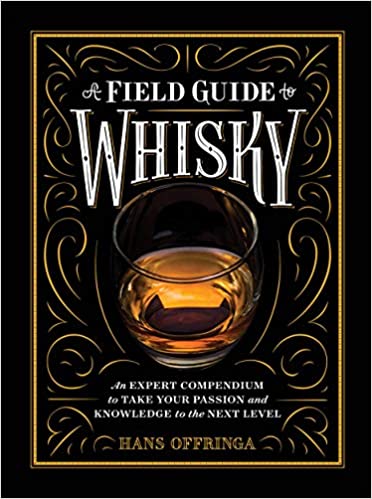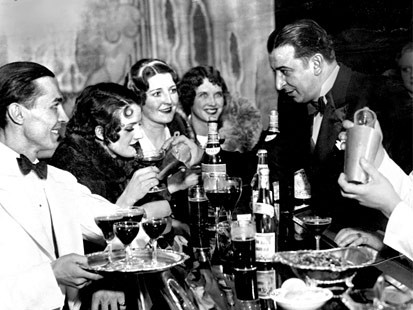 St Patrick’s Day is canceled once again this year, so no parades, no green beer, no bars blaring The Pogues or Dropkick Murphys and no party-goers spilling into the streets wearing “Kiss Me I’m Irish” shirts (despite not being Irish in the slightest). Of course, St Paddy’s wasn’t always about over-imbibing. Traditionally, it’s the Catholic feast day of St Patrick, the patron saint of the Emerald Isle who is credited with both converting the Irish to Christianity and, famously, for driving the snakes out of Ireland. It wasn’t until Irish immigrants landed in populous North American cities that the day took on its current form of secular revelry (the first St Paddy’s parade was held in Boston in 1737—so it’s fitting that almost 300 years later, the unofficial festival anthem is now “I’m Shipping Up to Boston”!). So since we won’t be donning our sparkly green shamrock headbands this year (not in public, at least), this is a good time to go beyond the stereotypes and look into the long tradition of whisky, and see the cool ways this spirit has endured.
St Patrick’s Day is canceled once again this year, so no parades, no green beer, no bars blaring The Pogues or Dropkick Murphys and no party-goers spilling into the streets wearing “Kiss Me I’m Irish” shirts (despite not being Irish in the slightest). Of course, St Paddy’s wasn’t always about over-imbibing. Traditionally, it’s the Catholic feast day of St Patrick, the patron saint of the Emerald Isle who is credited with both converting the Irish to Christianity and, famously, for driving the snakes out of Ireland. It wasn’t until Irish immigrants landed in populous North American cities that the day took on its current form of secular revelry (the first St Paddy’s parade was held in Boston in 1737—so it’s fitting that almost 300 years later, the unofficial festival anthem is now “I’m Shipping Up to Boston”!). So since we won’t be donning our sparkly green shamrock headbands this year (not in public, at least), this is a good time to go beyond the stereotypes and look into the long tradition of whisky, and see the cool ways this spirit has endured.
Whisky’s history is cloudy, due to spotty record-keeping back in the day, but general consensus is that it was invented in Ireland by monks around 1000 AD, who probably picked up some distilling tricks along their journeys in the Mediterranean and then applied them to the ingredients they had back home. The name itself comes from the Gaelic uisce beatha—which, from what I can tell, is pronounced something like “ish-ka ba-ha”—meaning “water of life” (so, basically the Irish version of aqua vitae). The first actual record of whisky is from 1405, and the first licensed distillery was Northern Ireland’s Old Bushmills Distillery in 1608. With such a long history of distilling this spirit, you’d think that Ireland would dominate the whisky market today. Unfortunately, the country’s liquor production hit some rough patches during the turbulent 20th century (see: the First World War, the Easter Rising of 1916, and Prohibition in the US that cut off its most lucrative market—not to mention World War II, and the British Empire cutting off trade with the Republic) which dwindled its distilleries down to only two. But not to worry, production of the native beverage has picked up since the latter half of the twentieth century, with new distilleries constantly opening up across the isle, and Jameson placing third in the top-selling whiskies in the world (behind the college-crowd pleasing Jack Daniel’s and Jim Beam).
Since its invention hundreds of years ago, whisky has become so ubiquitous that you may not even associate it with Ireland first. If I asked you to name a country that produces the drink, what would be your first thought? Scotland? That would be fair, since Scotland overtook Ireland in production during the 1800s. You might know it as “Scotch whisky”, or simply “Scotch.” A taste test between the two would reveal the spirit’s origins: a distilling process involving peat (a Scotland staple) gives a smokier, maltier, deeper taste to a Scottish whisky. These region-specific processes help distinguish Scotch and Irish whiskies from each other, but also from their North American cousins. To qualify as bourbon, for example, a whisky needs to be made up of at least 51% corn (a very American ingredient that gives it a sweeter taste), must be aged in new barrels (rather than reusing old ones, which is common practice elsewhere), and must be made in the United States. So does that mean all American whisky is bourbon? Nope! The all-time popular Jack Daniel’s is a “Tennessee Whisky” because it doesn’t qualify.

Flappers at a speakeasy (public domain photo)
Meanwhile, in Canada, the terms “Canadian whisky” and “rye whisky” (or just “rye”) are used interchangeably. That’s because it was historically made with a bit of rye grain, but get this: there doesn’t actually (legally) have to be any rye in it to qualify. We’ve just co-opted the name! Canada’s history with whisky is particularly fun: the founder of Canadian Club wasn’t actually Canadian at all—he was a man named Hiram Walker who moved his business from Detroit to Windsor, and began running illicit liquor across the border in small smuggling boats during Prohibition (The CBC Archives has a neat oral history of rum-running in the 1920s). Canada’s own Crown Royal comes in at number 4 in the top-selling whiskies worldwide.
This age-old beverage’s popularity also transcends Western borders: Japan is a rising star in the whisky game, and if you’re willing to spend a bit more, you can find some of these Scotch-inspired offerings right here in Ontario.
Whisky’s flavour profile makes it ideal for mixing, so if you’re looking for something a little more exciting than plain old on-the-rocks, VPL has got you covered. Check out some of these titles for not only some neat recipes, but for an even deeper look into whisky’s history:
- Whiskey: A Tasting Course
- The Whisky Dictionary
- A Field Guide to Whisky
- Whiskey: A Spirited Story With 75 Classic and Original Cocktails
If you’re feeling fancy, the LCBO recently put together a list of mouthwatering whisky-based cocktails created by local Ontario bartenders (the drinks are autumn-inspired, but hey, in our Canadian “spring”, who couldn’t use a little more warmth right now?). With so many different options, it’s easy to celebrate a more low-key (and dare I say, more mature?) version of St Patrick’s Day this year.
If you’e looking for a little more Ireland content, see our older posts Are We Normal People? and Sally Rooney, Modern Writer for a Modern Ireland.
Sláinte!
Wow imagine getting beaten at the game you invented, to the point where when I think of whiskey I think of Scotland! What a fun history of whiskey in Canada too, including the rye whisky naming convention haha! Have you heard of Kinsip before? I really enjoyed their whiskey maple syrup and some of their other offerings.
Poor Ireland! Apparently Scotland has been trying to claim the invention of whiskey as their own, but historical records say otherwise.
I have heard of Kinsip! I bought my dad their whisky maple syrup for Christmas and it was a hit! Now I want to look into their other products…